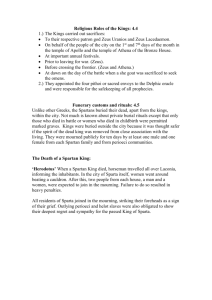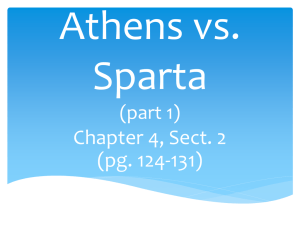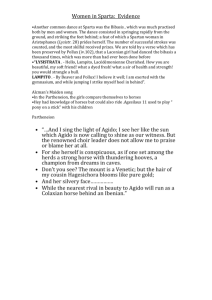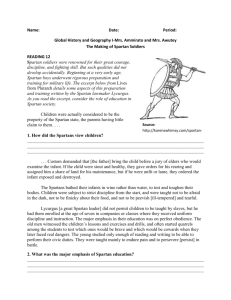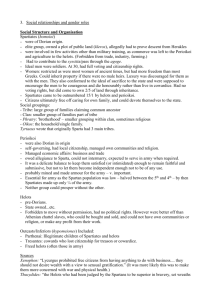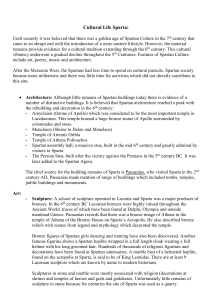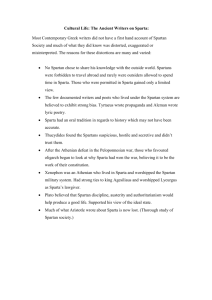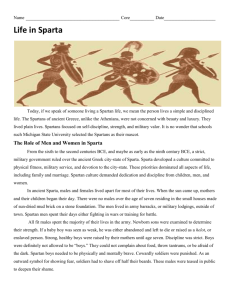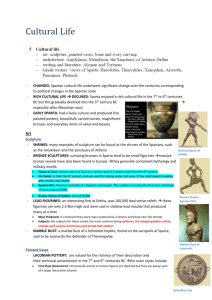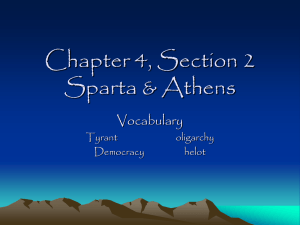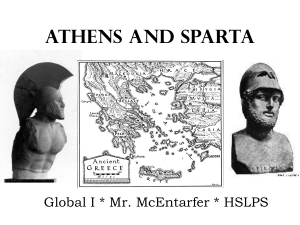Spartan Funerary customs
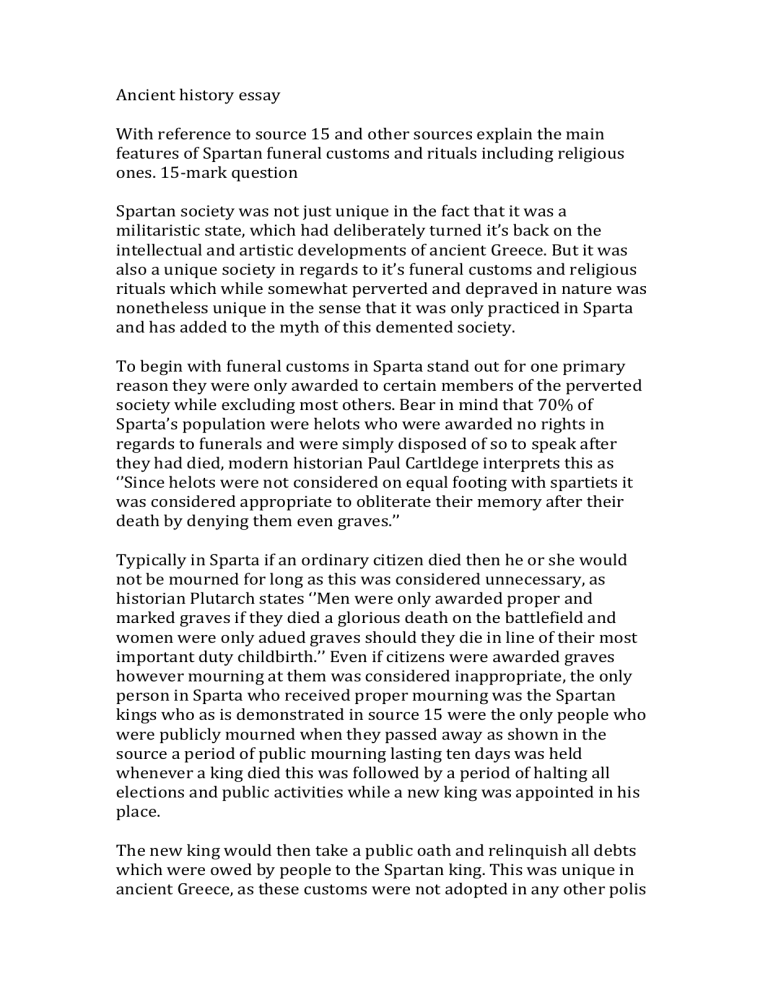
Ancient history essay
With reference to source 15 and other sources explain the main features of Spartan funeral customs and rituals including religious ones. 15-mark question
Spartan society was not just unique in the fact that it was a militaristic state, which had deliberately turned it’s back on the intellectual and artistic developments of ancient Greece. But it was also a unique society in regards to it’s funeral customs and religious rituals which while somewhat perverted and depraved in nature was nonetheless unique in the sense that it was only practiced in Sparta and has added to the myth of this demented society.
To begin with funeral customs in Sparta stand out for one primary reason they were only awarded to certain members of the perverted society while excluding most others. Bear in mind that 70% of
Sparta’s population were helots who were awarded no rights in regards to funerals and were simply disposed of so to speak after they had died, modern historian Paul Cartldege interprets this as
‘’Since helots were not considered on equal footing with spartiets it was considered appropriate to obliterate their memory after their death by denying them even graves.’’
Typically in Sparta if an ordinary citizen died then he or she would not be mourned for long as this was considered unnecessary, as historian Plutarch states ‘’Men were only awarded proper and marked graves if they died a glorious death on the battlefield and women were only adued graves should they die in line of their most important duty childbirth.’’ Even if citizens were awarded graves however mourning at them was considered inappropriate, the only person in Sparta who received proper mourning was the Spartan kings who as is demonstrated in source 15 were the only people who were publicly mourned when they passed away as shown in the source a period of public mourning lasting ten days was held whenever a king died this was followed by a period of halting all elections and public activities while a new king was appointed in his place.
The new king would then take a public oath and relinquish all debts which were owed by people to the Spartan king. This was unique in ancient Greece, as these customs were not adopted in any other polis
especially the relinquishing of public debts. However it is interesting to note that the practice of burying dead kings outside of the city walls to prevent him from haunting the new king was practiced before the Spartan age and was continued even until early Roman times.
Regarding Spartan religious festivals they were unique and confined soley to the state itself, for example the Gymnopedia festival which involved young boys trying to steal a piece of cheese guarded by other boys who were armed with whips was not practiced in an other state except Sparta. Plutarch states that these practices were meant to strengthen the Spartan boy into preparing them for a life of hardship in service of the Spartan state. I was also as he states ‘’ a way to rid them of cowardice so that they would fear nothing not even death’’.
On the surface it would seem like all of Sparta’s energy even festivals were meant to prepare the boys for their future glorious deaths.
However this could be a mere misunderstanding since the Karina festival for example were a celebration of harvest and while there was a military theme to some parts of the festival it is undeniable that much of the festival was a celebration of harvest and thus agriculture and not that of a glorification of militarisation.
While military themes such as loyalty and obedience dose run deep in both Spartan funeral customs especially for kings since they were the commanders in chief and in many parts of it’s funeral customs it is not fair to say that this was the whole theme of such things since kings were sometimes genuinely loved by the people of the state and festival’s also had other themes such as with Karina which had an essentially agricultural theme and emphasise on embarrassing the helots who were serfs of the state.
In conclusion one can state with absolute clarity that Sparta’s unique image in the eyes of many originates from the strange funeral and religious rituals, which were practiced in the Spartan state some of which were even considered bizarre in their own time for example the cheese whipping Gymnopedia festival which ancient Greek sage
Herodotus once remarked were ‘’Bizarre in nature and which produced nothing but wounds and fear in the young men forced to take part in them.’’ Yet despite this it is exactly these bizarre rituals
and customs, which have added fuel to the fire of the Spartan myth which still continues to endure in the minds of many today.


